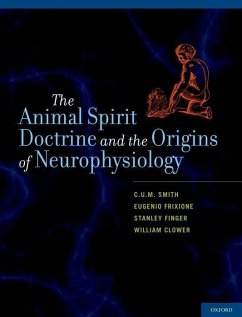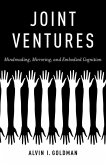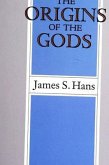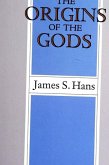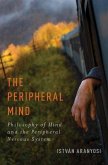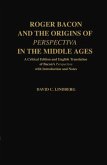C U M Smith, Eugenio Frixione, Stanley Finger, William Clower
Animal Spirit Doctrine and the Origins of Neurophysiology
C U M Smith, Eugenio Frixione, Stanley Finger, William Clower
Animal Spirit Doctrine and the Origins of Neurophysiology
- Gebundenes Buch
- Merkliste
- Auf die Merkliste
- Bewerten Bewerten
- Teilen
- Produkt teilen
- Produkterinnerung
- Produkterinnerung
For millennia, the activity of the nervous system was believed to be due to indwelling animal spirit. This book describes the rise, development, apex, and slow decline of this idea, and its replacement by physicochemical theories of nerve conduction. It is a history of physiology and of the origins of neuroscience.
Andere Kunden interessierten sich auch für
![Joint Ventures Joint Ventures]() Alvin I GoldmanJoint Ventures128,99 €
Alvin I GoldmanJoint Ventures128,99 €![The Origins of the Gods The Origins of the Gods]() James S. HansThe Origins of the Gods101,99 €
James S. HansThe Origins of the Gods101,99 €![The Origins of the Gods The Origins of the Gods]() James S. HansThe Origins of the Gods38,99 €
James S. HansThe Origins of the Gods38,99 €![Surfing Uncertainty Surfing Uncertainty]() Andy ClarkSurfing Uncertainty31,99 €
Andy ClarkSurfing Uncertainty31,99 €![Peripheral Mind Peripheral Mind]() István AranyosiPeripheral Mind144,99 €
István AranyosiPeripheral Mind144,99 €![Roger Bacon & the Origins of Perspectiva in the Middle Ages Roger Bacon & the Origins of Perspectiva in the Middle Ages]() Roger BaconRoger Bacon & the Origins of Perspectiva in the Middle Ages277,99 €
Roger BaconRoger Bacon & the Origins of Perspectiva in the Middle Ages277,99 €![Averroes, Kant and the Origins of the Enlightenment Averroes, Kant and the Origins of the Enlightenment]() Saud M S Al TamamyAverroes, Kant and the Origins of the Enlightenment185,99 €
Saud M S Al TamamyAverroes, Kant and the Origins of the Enlightenment185,99 €-
-
-
For millennia, the activity of the nervous system was believed to be due to indwelling animal spirit. This book describes the rise, development, apex, and slow decline of this idea, and its replacement by physicochemical theories of nerve conduction. It is a history of physiology and of the origins of neuroscience.
Produktdetails
- Produktdetails
- Verlag: Oxford University Press, USA
- Seitenzahl: 304
- Erscheinungstermin: 11. Juli 2012
- Englisch
- Abmessung: 279mm x 221mm x 25mm
- Gewicht: 1270g
- ISBN-13: 9780199766499
- ISBN-10: 0199766495
- Artikelnr.: 35286882
- Verlag: Oxford University Press, USA
- Seitenzahl: 304
- Erscheinungstermin: 11. Juli 2012
- Englisch
- Abmessung: 279mm x 221mm x 25mm
- Gewicht: 1270g
- ISBN-13: 9780199766499
- ISBN-10: 0199766495
- Artikelnr.: 35286882
Chris Smith holds degrees in Zoology, Physics and Biophysics and a PhD in Neuroscience. Since retiring as Dean of the Faculty of Life and Health Sciences at Aston in 1996 he has devoted his time to the history and philosophy of neuroscience. He has published a number of books on neuroscience and the history of biology and has edited books on cranial trepanation, Erasmus Darwin, and eighteenth-century neuroscience. He has published some 140 academic papers and chapters and has acted as section editor in neurophilosophy for the Journal of the History of the Neurosciences. Eugenio Frixione is a cell physiologist who has published mainly experimental basic research on several mechanisms of cell motility in neural and epithelial tissues, and in unicellular parasites. Recently he has published studies on the intellectual evolution of major concepts about cell structure and function, as well as on key advances in the understanding of muscle physiology and other instances of biological motion. Stanley Finger first studied recovery from brain damage and then turned to the history of the neurosciences. His monographs in the latter domain include Origins of Neuroscience (with OUP), Minds Behind the Brain (with OUP), Doctor Franklin's Medicine, and most recently (with OUP), A Shocking History of Electric Fishes. He has edited books on cranial trepanation, eighteenth-century neuroscience, and the history of neurology, has published approximately 150 papers in edited journals, and has long served and continues to serve as editor of the Journal of the History of the Neurosciences. Will Clower is trained in neurophysiology, studying the mechanisms of movement control associated with motor learning. In the process of performing his neuroscience research in France, Dr Clower wrote and later published two books on the Mediterranean dietary behaviors. He now provides wellness programming for corporations, hospitals, and wellness centers around the United States.
Section 1: The Doctrine Introduced
Introduction
Chronology
Chapter 1: Psyche and soma
Chapter 2: Alexandria and Hellenistic psychophysiology
Section 2: The Doctrine Established
Introduction
Chronology
Chapter 3: Biblical anima-spirit
Chapter 4: The Islamic Ascendancy
Chapter 5: Animal spirit in an age of Faith
Section 3: The Doctrine Questioned
Introduction
Chronology
Chapter 6: Descartes
Chapter 7: Experiment and observation
Chapter 8: Theory and argument
Section 4: The Doctrine in Retreat
Introduction
Chronology
Chapter 9: Vibrations and subtle fluids
Chapter 10: Animal spirit in action
Chapter 11: Non-spiritual physiology I: "Physic " rather than "Psychic " Functions
Chapter 12 Non-spiritual physiology II: Irritable fibers
Section 5: The Doctrine Discarded
Introduction
Chronology
Chapter 13: The increasingly electrical world
Chapter 14: Electric fishes and the path to animal electricity
Chapter 15: From Fish to Frogs and nerve Electricity
Epilogue
Bibliography
Index
Introduction
Chronology
Chapter 1: Psyche and soma
Chapter 2: Alexandria and Hellenistic psychophysiology
Section 2: The Doctrine Established
Introduction
Chronology
Chapter 3: Biblical anima-spirit
Chapter 4: The Islamic Ascendancy
Chapter 5: Animal spirit in an age of Faith
Section 3: The Doctrine Questioned
Introduction
Chronology
Chapter 6: Descartes
Chapter 7: Experiment and observation
Chapter 8: Theory and argument
Section 4: The Doctrine in Retreat
Introduction
Chronology
Chapter 9: Vibrations and subtle fluids
Chapter 10: Animal spirit in action
Chapter 11: Non-spiritual physiology I: "Physic " rather than "Psychic " Functions
Chapter 12 Non-spiritual physiology II: Irritable fibers
Section 5: The Doctrine Discarded
Introduction
Chronology
Chapter 13: The increasingly electrical world
Chapter 14: Electric fishes and the path to animal electricity
Chapter 15: From Fish to Frogs and nerve Electricity
Epilogue
Bibliography
Index
Section 1: The Doctrine Introduced
Introduction
Chronology
Chapter 1: Psyche and soma
Chapter 2: Alexandria and Hellenistic psychophysiology
Section 2: The Doctrine Established
Introduction
Chronology
Chapter 3: Biblical anima-spirit
Chapter 4: The Islamic Ascendancy
Chapter 5: Animal spirit in an age of Faith
Section 3: The Doctrine Questioned
Introduction
Chronology
Chapter 6: Descartes
Chapter 7: Experiment and observation
Chapter 8: Theory and argument
Section 4: The Doctrine in Retreat
Introduction
Chronology
Chapter 9: Vibrations and subtle fluids
Chapter 10: Animal spirit in action
Chapter 11: Non-spiritual physiology I: "Physic " rather than "Psychic " Functions
Chapter 12 Non-spiritual physiology II: Irritable fibers
Section 5: The Doctrine Discarded
Introduction
Chronology
Chapter 13: The increasingly electrical world
Chapter 14: Electric fishes and the path to animal electricity
Chapter 15: From Fish to Frogs and nerve Electricity
Epilogue
Bibliography
Index
Introduction
Chronology
Chapter 1: Psyche and soma
Chapter 2: Alexandria and Hellenistic psychophysiology
Section 2: The Doctrine Established
Introduction
Chronology
Chapter 3: Biblical anima-spirit
Chapter 4: The Islamic Ascendancy
Chapter 5: Animal spirit in an age of Faith
Section 3: The Doctrine Questioned
Introduction
Chronology
Chapter 6: Descartes
Chapter 7: Experiment and observation
Chapter 8: Theory and argument
Section 4: The Doctrine in Retreat
Introduction
Chronology
Chapter 9: Vibrations and subtle fluids
Chapter 10: Animal spirit in action
Chapter 11: Non-spiritual physiology I: "Physic " rather than "Psychic " Functions
Chapter 12 Non-spiritual physiology II: Irritable fibers
Section 5: The Doctrine Discarded
Introduction
Chronology
Chapter 13: The increasingly electrical world
Chapter 14: Electric fishes and the path to animal electricity
Chapter 15: From Fish to Frogs and nerve Electricity
Epilogue
Bibliography
Index

